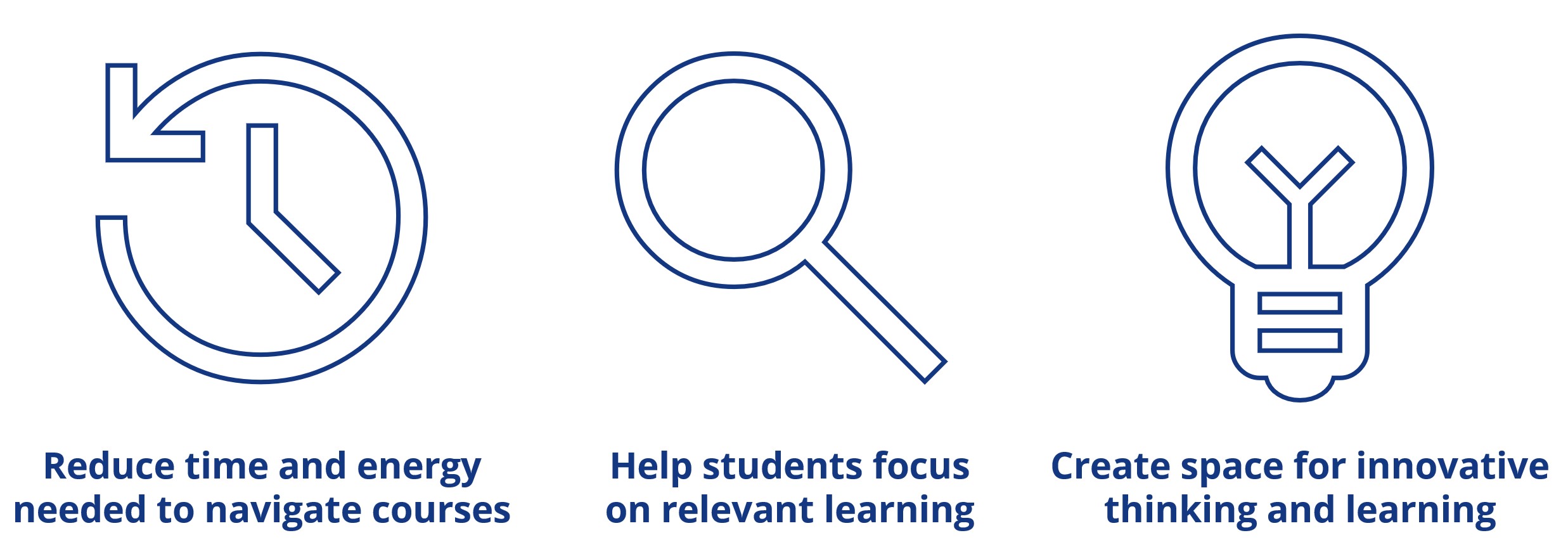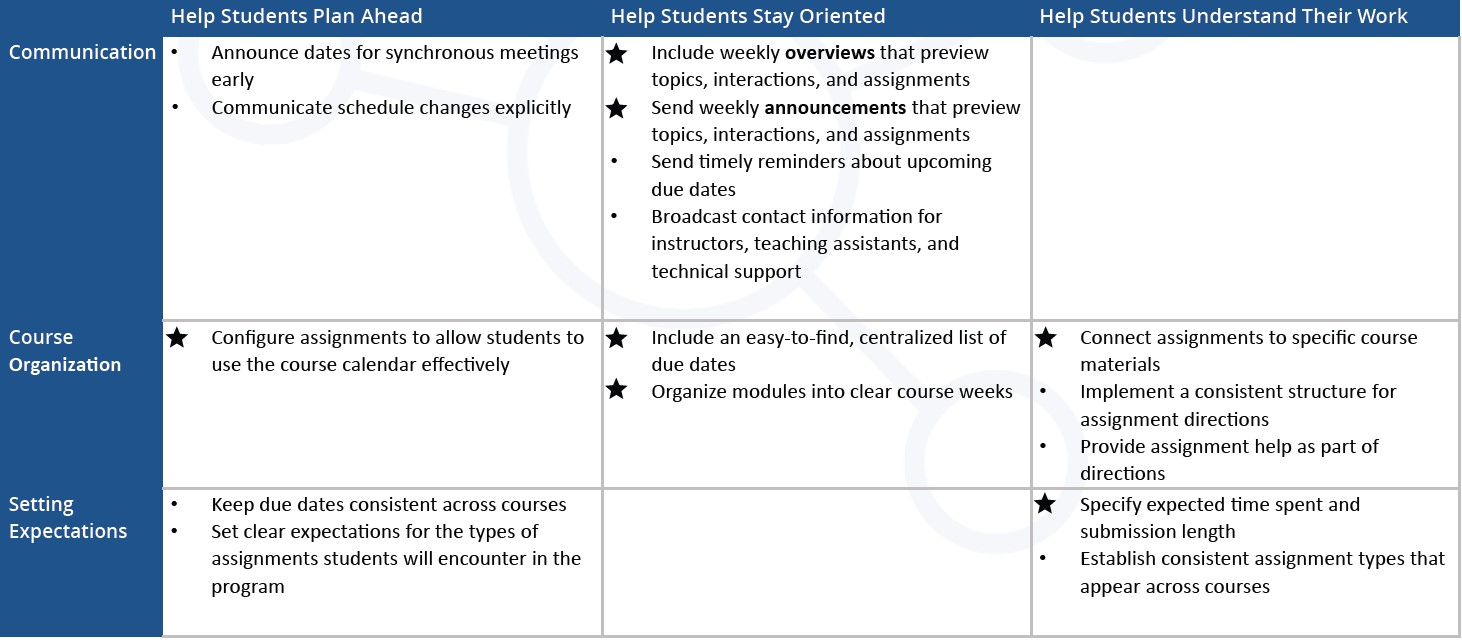When it comes to online learning, a taste of the unexpected may stimulate curiosity and delight, encourage students to test new ideas, and spark connections that lead them to integrate knowledge. But the line between inventiveness and disorganization is narrow. And deployed indiscriminately, course elements that defy expectations can create extraneous cognitive load that distracts from learning objectives, causes confusion, and diminishes the overall learning experience.
Many students are already overcommitted, balancing personal and professional obligations, financial stress, and their own wellbeing with their learning. Helping them make the most of their course time is of paramount importance. Therefore, in the design of our courses, MEHP Online prioritizes reducing extraneous cognitive load by:
-
reducing the time and energy required for course navigation
-
helping students focus on the most relevant content
-
helping students, to the extent possible, integrate knowledge by applying it to their day-to-day lives.
Taken together, these goals create a consistent, predictable structure across courses.

A Framework for Predictability
Predictability as a design principle is not novel. Teaching advice in 2020—as the COVID-19 pandemic shifted learning to virtual, remote settings—encouraged instructors to create predictable course structures and schedules to reduce student stress. Pre-pandemic research and reflection on online learning highlighted students’ “appreciation of a weekly rhythm for assignments and due dates” and identified unpredictability as a significant source of dissatisfaction. And predictability appears as a component of quality rubrics for online teaching. For example, Standard 2 of OSCQR—the Online Learning Consortium's classroom scorecard—states that an effective online course should:
Provide an overall orientation or overview, as well as module-level overviews to make course content, activities, assignments, due dates, interactions, and assessments, predictable and easy to navigate/find.
Rather than novelty, we offer a framework that has helped us treat consistency and predictability systematically by helping students:
-
Plan ahead
By announcing class meetings early, helping students use the LMS’s course calendar feature effectively, and keeping due dates consistent across courses. -
Stay oriented in their coursework
By including weekly content previews, timely reminder announcements, and an easy-to-find centralized list of due dates. -
Understand assignments at a glance
By connecting assignments to course and program objectives, implementing a consistent structure across most assignments, and providing just-in-time help in-line with the directions.
The image below is the full framework of strategies for consistency and predictability, containing 16 tasks broken into the 3 categories above, as well as 3 general types: communication, course organization, and setting expectations. You can download a full-sized version of this chart as part of the PDF handout linked below.

Implementing the Framework
The framework may look like an overwhelming number of tasks, but not every task needs to be the responsibility of the instructor. Some, like announcing dates for synchronous class meetings, can be completed by program administrators with access to a mailing list. Others, like creating a centralized list of due dates, can be completed by instructional support staff—or even automatically by the learning management system. Finally, many of these tasks can be completed before the course starts and scheduled in the LMS to make components available to students at opportune times.
In addition, not every strategy needs to be implemented all at once. MEHP Online has developed this framework incrementally over several years, and it can be implemented in a similarly incremental fashion. To get started, we recommend focusing on tasks that have the greatest impact with the least effort:
-
Course calendar
Make sure students can see assignment and interaction due dates on the course calendar -
Overviews and announcements
Use weekly overview pages and announcements to preview content and assignments -
Centralized due dates
Keep a centralized list of key dates students who prefer them in that format -
Weekly modules
Organize modules by week and indicate unit breaks with subheadings -
Context for assignments
Connect assignments to specific course content in the directions, so students know what they are practicing -
Submission time and length
Help students plan their time by indicating how long they should spend on assignments
Once these items are in place, they can be adapted for subsequent courses, and the total implementation can be expanded over time.
In MEHP Online’s programs, this framework has helped ensure that key information is clear and accessible to students where and when they need it most. It has helped create cognitive space for adult students managing full-time employment to pursue challenging, project-driven coursework. And we believe it will be useful in undergraduate and graduate settings, whether online, hybrid, or in person.
Learn more about designing online courses to maximize consistency and predictability by downloading the PDF below.
Post adapted from “Less, but More Germane: Consistency and Predictability as Principles for Course Design” by Karen T. Kappe, MA and Adam D. Zolkover, MA. Presented at OLC Accelerate, 2022.

